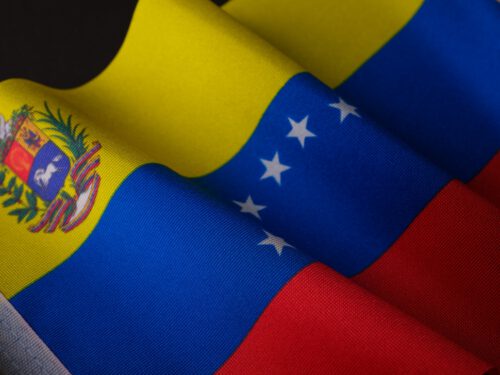Article
Ahead of Venezuela’s Election, What Do the Polls Really Show?

Article
Fact-based, data-driven research and analysis to advance democratic debate on vital issues shaping people’s lives.
Center for Economic and Policy Research
1611 Connecticut Ave. NW
Suite 400
Washington, DC 20009
Tel: 202-293-5380
Fax: 202-588-1356
https://cepr.net
This Sunday, July 28, Venezuelans will head to the polls in what has been framed as the opposition’s best chance to unseat President Nicolás Maduro, who has been in office since 2013. From the media coverage, one comes away with the impression of only two options: an opposition win, or massive pro-Maduro fraud.
There are many pollsters in Venezuela, and indeed most have shown opposition candidate Edmundo González Urrutia with a clear advantage. There are eight other candidates running, though none appear to have significant support. González is “leading the race with support from more than 50 percent of respondents in several polls,” the New York Times reported last week. Polls show he “would easily win the vote,” according to the Wall Street Journal.
They aren’t wrong. But it’s possible the pollsters are.
As Venezuelan economist (and CEPR Senior Research Fellow) Francisco Rodríguez recently noted on X (formerly Twitter), an average of the polls conducted ahead of the July 28 vote show González with a 28.9 percentage point advantage over Maduro. But, he continued, after correcting for polling bias, that lead largely evaporates. Since 2015, pollsters have overestimated opposition support by an average of 29.5 percentage points, he found.
Rodríguez corrected for polling bias in three different ways — based on the average bias from 2004 to 2021, the average bias from 2017 to 2021, and based on an overall average that gave greater weight to polls in more recent years. He also adjusted the numbers by giving a relatively greater weight to pollsters with greater historical precision. The results show a range of outcomes, from a 9.5 percentage point advantage for González to an 8.1 percentage point advantage for Maduro.
 Source: Francisco Rodríguez on X (translated to English)
Source: Francisco Rodríguez on X (translated to English)
“Rather than providing a precise projection, what these estimates show is the profound uncertainty we may have today about the electoral outcome given how inadequate polls have been as predictors of results in the recent past,” Rodríguez wrote.
The economist noted some potential explanations for the systematic overestimation of opposition support by pollsters. First, the bias could be caused by opposition abstention. If so, then Rodríguez notes that “in an environment of high mobilization and opposition unity, the bias will be reduced and the results will be close to those shown by the surveys.” But the level of migration from Venezuela may also affect the weights that pollsters use, which are based on older census data. If relatively more people have migrated from more pro-opposition geographical areas, this could explain the errors. Another explanation is that the vote itself is neither free nor fair.
Certainly much of the coverage ahead of this weekend’s vote has focused on the unfair playing field — with Maduro utilizing state resources, limiting independent news coverage, and the government throwing roadblocks in the opposition’s path, most notably through the rejection of multiple opposition candidates’ participation in the vote.
But there has been relatively little attention given to another way in which the electoral playing field has been badly skewed: US sanctions.
It is of course true that Venezuela’s economic decline (a record setting collapse of more than 70 percent in per capita GDP since 2012) began prior to the imposition of US sanctions. However, according to calculations by Rodríguez, more than half of that decline “can be explained as a result of sanctions and other politically induced restrictions such as the withdrawal of government recognition.” Setting aside the illegality and tens of thousands of Venezuelan deaths, or more, caused by the sanctions — as CEPR and Rodríguez have documented — US sanctions have destabilized the electoral landscape in two key ways.
First, economic performance is a crucial issue for voters. It is impossible to legitimately deny that those sanctions, and the resulting economic hardship, have undermined overall levels of support for Maduro and his government. The second is potentially even greater. The sanctions are like a gun pointed at the head of the electorate.
The US partially lifted some sanctions late last year as part of an agreement meant to ensure “free and fair” elections. But after the exclusion of María Corina Machado (who had won an opposition primary and has since thrown her support behind González) from the race, the US reversed course — and will now wait until the electoral process has concluded to take additional steps in either direction.
Venezuelan voters can understand the stakes. If Maduro wins, the US and others who favor regime change will likely blame it on the lack of “free and fair” elections. The US government has refused to recognize the results of prior Venezuelan elections — even when the rest of the hemisphere strongly disagreed with Washington and saw the elections as clean. And this time the US would probably cite the preelection polls as proof.
In that case, the lethal sanctions, which deprive Venezuelans of food and medicine, would almost certainly continue. A vote for Maduro is therefore a vote for continued sanctions, which means further deprivation, poverty, and elevated death rates.
As Rodríguez noted, what is revealed by the polling adjustments is not a foregone electoral conclusion but rather the existence of a “deeply divided country.” With just a few days before the vote, most of the international concern has been about whether or not Maduro will accept the results (assuming he will lose). But equally as dangerous is the assumption that the only way he wins is through a massive fraud. The reality is that neither side, each with legitimate criticisms of the fairness of the vote, is likely to accept the results if they don’t go their way.